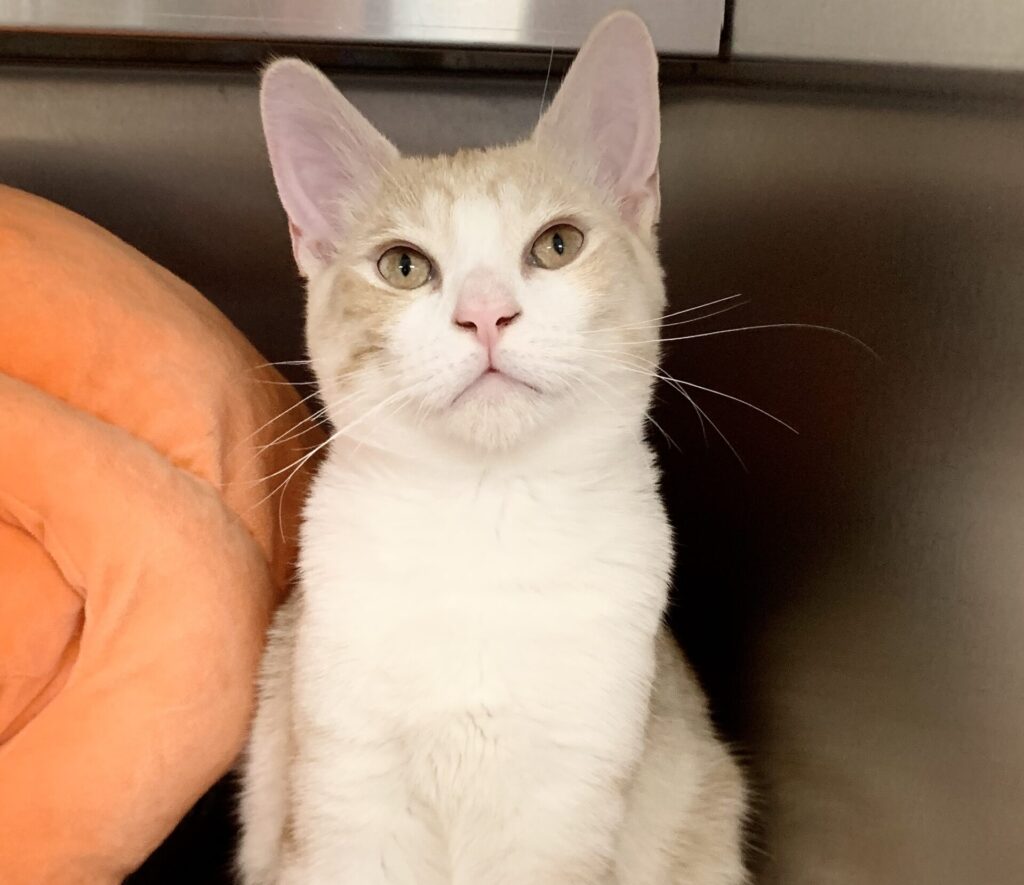How to train your cat 101

Some of us are dog people – with lovable, goofy friends to come home to that obey our every command. And some of us are cat people and instead, must go home to tiny, fluffy overlords.
Have you ever heard the expression, “It’s like herding cats”? This phrase, used to describe the near impossibility of trying to wrangle stubborn creatures (i.e. children), is not lost on cat owners who hear it.
If you own a cat, you know – cats are independent. They love to do their own thing, and sometimes that means completely ignoring all of your wishes. This may make owning a cat sound like a challenge, but we like to think of it as more of an opportunity. While they can be stubborn, there are things you can do to help guide your cat toward following the rules in your home.
Keeping kitty off the counter.
Cats have major ups. They can jump onto countertops, shelves or tall fixtures. To help try and keep your cats off of these areas, you have to be strategic. First, try to make the areas unappealing. Many cat owners have trained their cats to stay off of particular areas by placing crumpled aluminum foil on the surface or double-sided pet tape on a piece of cardboard that you can set directly on the counter. Your cats will not appreciate this and likely jump right back off. Simultaneously, you should provide plenty of other options and reward the cat for using them. Cats want and need to have high perches, so if the counter is the best one available, they’re going to take it!
Unfortunately, we often keep our beloved items in higher places to keep them safe. When you’re thinking about adopting a cat, or if your efforts to keep your cat on the ground level are fruitless, consider all of the valuables you have and move them to a spot where they are less likely to get tampered with. Cats love knocking things over on purpose. We don’t know why. Secure your breakables behind doors – glassed-in cabinets or shelves the cat cannot access – or into areas where the cat isn’t allowed, like a closed office or bedroom, could be helpful, too.
Invest in scratch-resistant furniture.
Cats need things to scratch on – this is how they give themselves a manicure. And you don’t want to mess with a cat that hasn’t gotten its manicure. Your cat scratches not only to take care of its nail health but to stretch, relax and release its scent (mark its territory).
Because cats use scratching to mark territory, they want their scratch objects to be ‘front and center’ of their space, displaying the message. A post tucked into a corner or hidden in the laundry room is unlikely to succeed. If your cat isn’t using a post, try adjusting the position several different ways before giving up on it! Some cats like horizontal scratching surfaces, while others prefer vertical or slanted ones. Try a variety to see what your cat is attracted to, then provide multiple options of that type. Inexpensive cardboard scratchers are great for “samples” when trying to figure out the right angle.
While you can’t make your cat stop scratching entirely, you can help guide it to an appropriate outlet. If your cat just can’t get enough of your couch or dining room table, there are attachable scratching posts that you can hook onto your furniture, too! You can also try humane nail caps as a tool for new cats or cats in a new space, to limit damage as they’re learning the rules.
Why won’t you just listen?!
Cats like attention-seeking behavior, so yelling “no!” will just seem like you are giving them the attention they want. The next time your cat is chewing on one of your houseplants, biting or kicking you, yowling for food or getting into the trash, just know that yelling at it is confusing. Instead, you can stock up on cat treats, practice good behavior and reward them for each training session. Cats respond better to positive reinforcement. Oh, and, don’t use the squirt bottle. A squirt bottle will make troublesome behaviors worse. Squirt bottles, like all fear-based training methods, are inhumane as well as ineffective and may cause your pet to fear you by association, since punishment only happens in your presence. If your cat feels stressed at home, it may become more aggressive and act out more frequently.
Even though cats can be silly, unruly creatures, we adore them just the same! If you’re ready to take on being a cat parent, you can apply to meet and adopt one of our fabulous felines today.
Donate
Donating to the Humane Society is a meaningful way to make a positive impact on the lives of countless animals. Your generous contributions provide vital support for our mission to rescue, rehabilitate, and find loving homes for abandoned and neglected animals.
